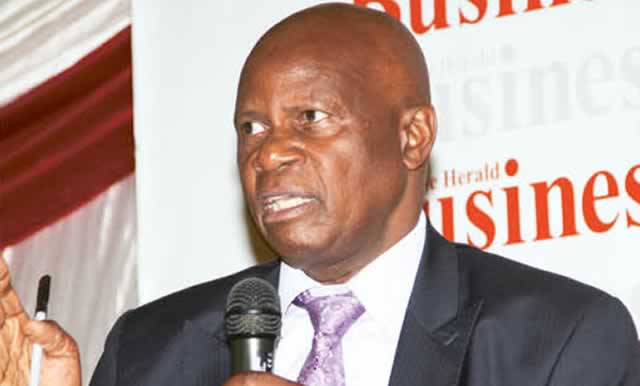Editorial Comment: Herald Business breaks new ground

 The Herald Business will tomorrow break new ground by hosting an investment conference in South Africa in an effort to lure the much needed capital into Zimbabwe. The need for foreign investment cannot be overemphasised. It is the missing link in the race towards economic revival. The breakfast meeting, which is a follow-up to the various business briefings The Herald Business organised, is aimed at bringing the Government closer to the business community and investors.
The Herald Business will tomorrow break new ground by hosting an investment conference in South Africa in an effort to lure the much needed capital into Zimbabwe. The need for foreign investment cannot be overemphasised. It is the missing link in the race towards economic revival. The breakfast meeting, which is a follow-up to the various business briefings The Herald Business organised, is aimed at bringing the Government closer to the business community and investors.
Zimbabwe should take a holistic approach in engaging its southern counterparts to discuss investment issues and areas of co-operation.
The South African breakfast, running under the theme “Investing in Zimbabwe — Opportunities for South African Businesses” will bring together SA investors and Zimbabwean policy-makers in mapping a way forward.
The theme sets the tone for an expected positive engagement between Zimbabwe and South Africa with the aim of clearing a perception that was set during and after the land reform and the indigenisation law where this country was labelled a hostile investment environment.
Zimbabwe urgently requires significant amounts of foreign direct investment to create employment, enhance technological progress, improve productivity, add value and beneficiate its raw materials. The breakfast comes at a time when the Development Bank of South Africa is already funding some projects in Zimbabwe which include the rehabilitation of the Plumtree-Mutare highway and also funding feasibility studies for the Beitbridge-Chirundu highway.
DBSA co-finances, leads, arranges, underwrites and advises on the funding of infrastructure and socio-economic projects in the region. It also plays a multiple role of advisor, partner, implementer and integrator to mobilise finance and expertise for development projects and construction.
Industrial Development Corporation (IDC), Public Investment Corporation (PIC) and Transnet are also considering funding some specific infrastructure projects and the Government of Zimbabwe has already received a letter from South Africa expressing South African companies’ willingness to fund and invest in our infrastructural projects.
South African investments continue to grow in almost all sectors of the Zimbabwean economy as witnessed by the recent partnership between TM and Pick n’ Pay retail operators and the ongoing plans by McCormick to construct the Mall of Zimbabwe in Borrowdale. Government has of late been more focused on the Look East approach yet South Africa remains the biggest investor in the country. Finance and Economic Development Minister Patrick Chinamasa told an investment conference last month that its time Government should start taking SA investors seriously.
The National Railways of Zimbabwe, with financial support from DBSA, conducted a study in 2012 which concluded that NRZ required priority investment of US$442 million in the short-term and US$1,9 billion in the long run to rehabilitate and upgrade the railway network, signalling communications equipment as well as to acquire rolling stock. South Africa remains Zimbabwe’s strategic investment partner.
The size of investment made by SA entities in the country actually justifies the need for Government to cross the borders to share the true image of Zimbabwe’s investment climate.
Zimbabwe at the moment can only process less than 30 percent of the cotton grown locally, and virtually zero percent of diamonds, a situation which is not conducive for economic growth.
Such a scenario leaves the ball in the court for Government to take a holistic approach in creating a platform for dialogue with investors regardless of which identity or nationality.
The continued export of raw materials on the back of subdued investment in value addition has made the export market unsustainable as the country continues to have no control over international commodity prices.
A report recently released by the African Development Bank stated that the African primary sector has been the largest recipient of accumulated foreign direct investment and Zimbabwe came out as one of the countries with the most hostile investment environment.









Comments